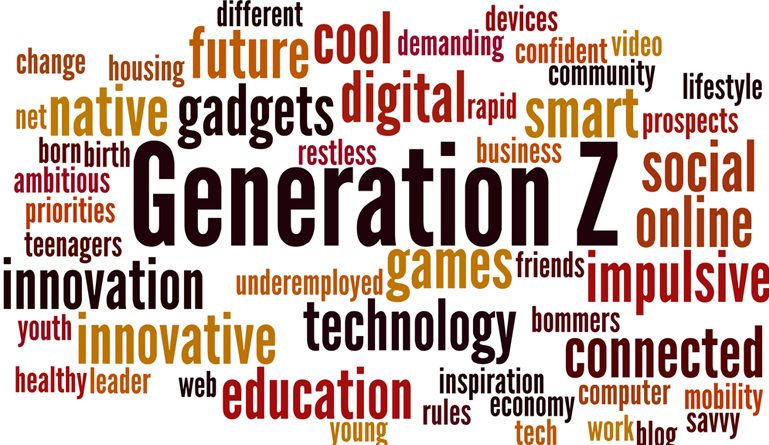
Generation-Z students (Gen-Z), those born between 1997-2010, are the most technologically advanced generation of our lifetimes. They are digital natives, who have accessed technology from a young age. It is, therefore, unsurprising that they are enrolling increasingly in online, higher education programs. Reaching Gen-Z, then, will become a critical skill for those teaching in higher education over the next decade. Research shows us that, as a generation, Zoomers as some call them, are more likely to have mental health concerns and crisis. They feel more isolated, less connected to their peers, and more despondent about the future they see before them than previous generations. What then, should we do as educators to reach Gen-Z on a deeper level, increase their participation with their college communities, and lead them to hope for a brighter future?
Characteristics of Gen-Z
As I wrote in last week’s blog: Teaching Zoomers in an Anxious World, reaching Gen-Z students requires some new techniques on our part. This generation of students feels isolated, unappreciated, and frankly, disappointed in higher education.
In a 2023 Media Matters study, researchers found that Gen-Z has a strong connection to its core beliefs. For example, they are willing to pay more for brands that reflect their personal beliefs. They want more personalized interactions in both their online and offline communities. In these interactions, they expect authenticity, and they are more politically and socially active than millennials, Gen-Xers, or even Baby Boomers. (Media Matters) It stands to reason, then, that reaching Gen-Z in higher education classrooms will require some adaptation from educators.
In 2021 Roberta Katz, a senior research fellow at the Stanford Center for Advanced Study in Behavioral Science, led a study whose findings were published in Gen-Z Explained: The Art of Living in the Digital Age. Katz, and her co-authors Sarah Ogilvie, Jane Shaw, and Linda Woodhead found that Gen-Z values diversity, flexibility, and non-hierarchical authority. Keeping all of this in mind, it is time that we adjust our teaching methods to better reach Gen-Z students. (Roberta Katz) Below are a few ideas I’ve implemented that have received positive feedback from some of my online students.
Tips For Reaching Gen-Z
1. Use Groups
Use Groups – most contemporary Learning Management Systems (LMS) include an option for assigning groups. My students have reported that when they are in smaller groups, they feel more comfortable interacting with the peers through discussions, peer reviews, and chat rooms.

2. Use Video Meetings
Not only should we consider using video meetings with our full class, but it is also a good idea to incorporate individual video meetings with students. It can encourage students to recognize your humanity, but also allow you to better understand their needs, personality, and goals in your course.

3. Allow Choice
Whenever possible, allow students the opportunity to choose topics or deliverable formats. Some students prefer traditional essays, others want more creative outlets to demonstrate learning, such as presentations, video submissions, or skits. Still others think further outside of the box. These students may want to create an app, write a song, or recite poetry. Obviously, these ideas won’t work with every field of study, but the goal is to offer logical options to diverse groups of students.
4. Communicate Effectively
Gen-Zers value efficiency. They’ve had billions of answers at their fingertips for most of their lives. When asked to complete a task, they want to know the purpose. What will the task teach them? What are its goals? How will they know they’ve achieved success? Here is where our instructions, guidance, and rubrics are critical. When teaching Gen-Z, especially online, we need to give clear and concise instructions, provide examples of successful submissions, and create grading rubrics with measurable outcomes.

While the typical perception of Gen-Z students suggests that they are overly sensitive and “coddled,” research suggests otherwise. Regardless, our job is to teach the students on our rosters, not the students from bygone years. To succeed as educators, it is time for us to adapt to these digital natives.
Note: this is the second in a series reaching Gen-Z students in higher education to improve their outcomes.
References
Media Matters. “Media Matters: The Gen Z Outlook.” 2023. <link.gale.com/apps/doc/A757731161/ITOF?u=nhc_main&sid=ebsco&xid=359193d1. Accessed 14 Feb. 2025.>.
Roberta Katz, Sarah Ogilvie, Jane Shaw, Linda Woodhead. Gen-Z Explained: The Art of Living in a Digital Age. Chicago: University of Chicago Press, 2021.




